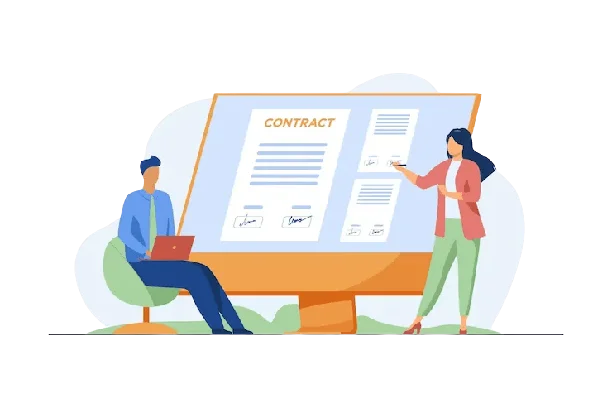![How to Write a Professional Resume Summary Examples & Guide How to Write a Professional Resume Summary [+Examples & Guide 2025]](https://api.superbresume.com/api/public/blog/6_2.webp)
How to Write a Professional Resume Summary [+Examples & Guide 2025]
How to Write a Professional Resume Summary? [+Examples
& Complete Guide for 2025] In today’s competitive job market, your resume needs to do
more than just list your qualifications — it needs to tell your story in a
compelling way. The resume summary is your chance to grab the
recruiter’s attention immediately, offering a snapshot of who you are as a
professional and what you bring to the table. This ultimate guide will teach you how to write a
professional resume summary that stands out in 2025, why it matters, and
how to tailor it for any role or industry. Plus, discover why using a powerful
tool like SuperbResume.com’s free, easy online resume builder can give
you a competitive edge in your job search. Table of Contents 1. What Is a Resume Summary? A resume summary is a brief statement at the very
beginning of your resume that highlights your most important qualifications,
experience, and skills. It’s typically 3-5 sentences or about 50-100 words long
and serves as a concise introduction to your resume. Unlike a resume objective, which focuses on what you want to
achieve, a summary focuses on what you already bring to the employer —
your value proposition. 2. Resume Summary vs. Resume Objective — What’s the
Difference? Resume Summary Resume Objective Pro tip: If you have relevant work experience, always
choose a resume summary. It’s more impactful and recruiter-friendly. 3. Why a Resume Summary Is Crucial in 2025 Short Attention Spans Demand Quick Value Hiring managers spend an average of 6-10 seconds reviewing
each resume. A strong summary immediately conveys your key strengths, making
them want to read more. ATS Optimization Applicant Tracking Systems (ATS) are used by 98% of large
employers to screen resumes. A summary packed with relevant keywords can
improve your chances of passing this initial screening. Differentiates You from Other Candidates With hundreds of resumes for every role, a tailored summary
helps you stand out by emphasizing your unique skills and accomplishments. Sets the Tone for Your Resume Your summary is your personal brand statement—it shows
employers who you are and what you can do right away. 4. Key Elements of a Strong Resume Summary To craft an effective resume summary, make sure to include: A. Job Title or Professional Identity Start by stating your current or target role to immediately
clarify who you are professionally. B. Years of Experience Quantify your experience to demonstrate your level of
expertise. C. Core Skills or Areas of Expertise Highlight your top skills that align with the job
description. D. Major Achievements or Accomplishments Use numbers, percentages, or facts to show your impact. E. Value Proposition or Career Goal End with how you can add value to the employer or your
career ambitions. 5. How to Write a Resume Summary: Step-by-Step Guide Step 1: Analyze the Job Description Look for keywords and required skills in the job posting.
Tailor your summary to reflect those qualifications. Step 2: Identify Your Top Strengths and Achievements Reflect on your work experience and select 3-5 key points
you want to highlight. Step 3: Start with Your Job Title and Experience Begin with a clear statement of your profession and years of
experience. Example: Step 4: Add Your Core Skills Mention your strongest, most relevant skills. Example: Step 5: Include Quantifiable Achievements Show how you contributed to your past roles with specific
numbers. Example: Step 6: Close with Your Value Statement Explain what you bring to the prospective employer. Example: Step 7: Keep It Concise Aim for 3-5 sentences or about 50-100 words total. 6. Top 10 Powerful Action Words for Resume Summaries Using strong verbs helps make your summary dynamic and
impactful: 7. Common Mistakes to Avoid When Writing Your Summary 8. Industry-Specific Resume Summary Examples Marketing “Creative marketing specialist with 8 years of experience
driving brand growth through digital campaigns and data-driven strategies.
Proficient in SEO, Google Analytics, and content marketing. Increased website
traffic by 50% and conversion rates by 30% for a Fortune 500 company.” IT/Software Development “Detail-oriented software engineer with 5+ years of
experience in full-stack development, specializing in Java and Python. Adept at
agile workflows and cloud deployment. Successfully led a project that reduced
server downtime by 40%.” Healthcare “Compassionate registered nurse with 7 years in critical
care settings. Skilled in patient assessment, care planning, and emergency
response. Recognized for improving patient satisfaction scores by 20% through
enhanced communication.” Sales “Results-oriented sales manager with 10+ years driving
revenue growth in B2B environments. Proven track record of exceeding sales
targets by 25% and building long-term client relationships. Skilled in CRM
software and team leadership.” Education “Experienced high school teacher with 12 years of teaching
literature and history. Skilled in curriculum development and differentiated
instruction. Increased student pass rates by 15% through innovative lesson
planning.” 9. How to Customize Your Resume Summary for ATS 10. How SuperbResume.com Can Help You Write the Perfect
Resume Summary At SuperbResume.com, we understand that writing a
professional resume summary can be challenging. That’s why our online resume
builder offers: Using SuperbResume.com saves you time and stress,
empowering you to build a resume that impresses recruiters and lands interviews
faster. 11. Frequently Asked Questions (FAQs) Q1: How long should my resume summary be? Aim for 3-5 sentences or roughly 50-100 words. Q2: Can I write a summary if I’m a recent graduate? Yes, but consider writing a career objective or a skills
summary focused on your education and internships. Q3: Should I include keywords in my summary? Absolutely! Incorporate relevant keywords from the job
posting to get past ATS filters. Q4: What if I’m changing careers? Focus your summary on transferable skills and your
enthusiasm for the new field. Q5: Can I have more than one summary for different job
applications? Yes, tailoring your summary for each role is highly
recommended. 12. Final Tips to Perfect Your Resume Summary Start Writing Your Perfect Resume Summary Today with
SuperbResume.com! Your resume summary is your first impression and your
best opportunity to stand out in the competitive job market of 2025. With
clear, targeted language and quantifiable achievements, you can capture
attention and secure interviews faster.
“Results-driven marketing manager with 7+ years of experience increasing
brand visibility and driving revenue growth through innovative digital campaigns.”
“Seeking a marketing coordinator role to leverage my communication skills
and passion for social media.”
“Experienced software developer with 6+ years specializing in web
applications.”
“Expertise in JavaScript, React, and agile development methodologies.”
“Improved application performance by 40% and reduced bugs by 25%.”
“Committed to delivering high-quality solutions and improving user experience.”





